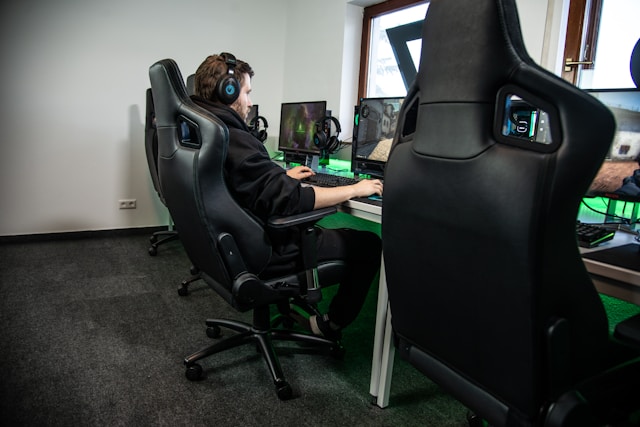As virtual reality (VR) technology continues to evolve, so too does its application in the world of online gambling. VR casinos offer immersive, interactive experiences that mimic real-world casino floors, complete with live tables, social avatars, and realistic game rooms. But with this advancement comes a new layer of safety and security challenges.
While VR casinos promise next-generation entertainment, they also raise important questions around data protection, player privacy, digital identity, and secure transactions. In this article, we explore the most pressing safety concerns in VR gambling—and what players should consider before diving in.
Data Privacy and Tracking Risks
One of the biggest safety concerns in VR casinos is the amount of personal data collected during gameplay. Unlike traditional online casinos, VR environments track a wider range of user inputs, including:
- Head and hand movements
- Voice recordings and conversations
- Facial expression tracking (on supported devices)
- Time spent at specific tables or zones
This data can improve the user experience—but it also poses privacy risks if misused, stored insecurely, or sold to third parties. Without strict data handling practices, players may unknowingly expose themselves to behavioral profiling and invasive tracking.
What to Look For:
- Transparent privacy policies from the VR casino
- Option to opt out of non-essential data tracking
- Strong data encryption protocols during gameplay and voice communication
Identity and Avatar Security

In virtual casino worlds, your avatar represents your identity. But unlike text-based profiles, VR avatars are visual, expressive, and sometimes voice-enabled, which increases the risk of:
- Impersonation or “spoofing” by other users
- Abuse or harassment from other players in shared spaces
- Loss of avatar-linked progress or digital assets if credentials are compromised
In some cases, virtual casinos also allow in-game purchases or item trading, which adds value to your digital identity—and therefore, attracts bad actors.
Protection Tips:
- Use strong passwords and two-factor authentication (2FA)
- Avoid sharing sensitive information via VR chat
- Report and block abusive or suspicious users immediately
Financial Security and Crypto Risks
VR casinos often support cryptocurrency payments, offering fast, anonymous transactions. However, this opens the door to new financial risks:
- Phishing scams disguised as in-game prompts or pop-ups
- Wallet theft or keylogging via compromised VR software
- Unregulated platforms that may delay or deny withdrawals
Because many VR casinos are new and may not yet be licensed under established jurisdictions, players face increased risk of fraud if the platform lacks oversight.
Safe Practices:
- Only deposit funds on licensed VR casinos
- Use hardware wallets for large crypto balances
- Verify the casino’s payout policies and user reviews
Software Vulnerabilities and Exploits
As with any digital platform, VR casinos are built on complex software frameworks. These can contain bugs or vulnerabilities that hackers could exploit to manipulate games, steal funds, or disrupt the environment.
Potential issues include:
- Weak or outdated VR app security
- Bugs in the game logic or payment processing
- Exploits that allow cheating or data scraping
Since VR casino technology is still developing, regular updates and third-party audits are essential to ensuring the safety and fairness of the platform.
Responsible Gambling Tools in VR

Immersive environments can make it harder to recognize how long you’ve been playing—or how much you’ve wagered. In VR, time and spatial awareness blur, leading to greater potential for over-gambling.
Some VR casinos include responsible gambling tools like:
- Session timers and reminders
- In-environment notifications about losses or budget use
- Built-in time-out zones or support desk avatars
However, these features are not yet standardized across platforms, so players should check what tools are available before committing time or money.
Final Thoughts: Staying Safe in Virtual Gambling Worlds
VR casinos offer an exciting new frontier in online gaming—but with greater immersion comes greater responsibility. From privacy protection and financial security to user behavior and platform integrity, players must take extra care to understand the risks and use safeguards proactively.
Before entering a VR gambling environment, ask yourself:
- Is the platform licensed and reputable?
- How is my personal data handled and stored?
- Are my funds and crypto wallet protected?
- What tools are in place for responsible gaming?
As the industry matures, expect to see stronger regulation and improved safety features. Until then, staying informed and cautious is the best strategy for enjoying virtual gambling without compromising your safety.
